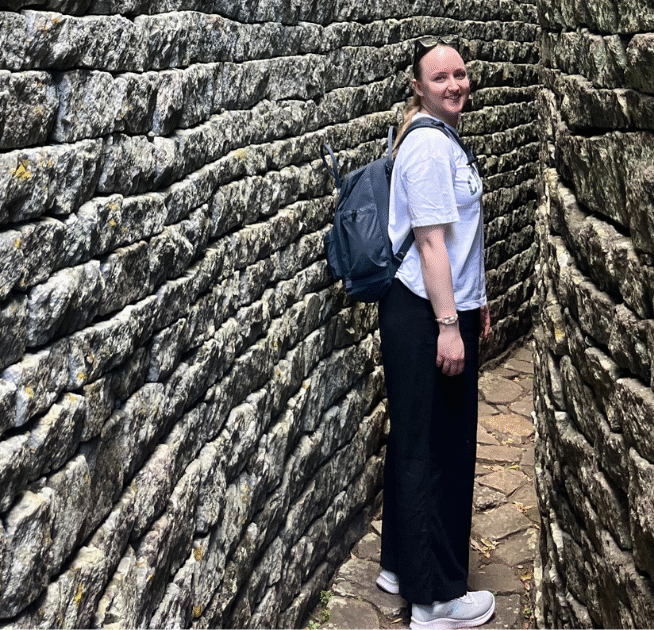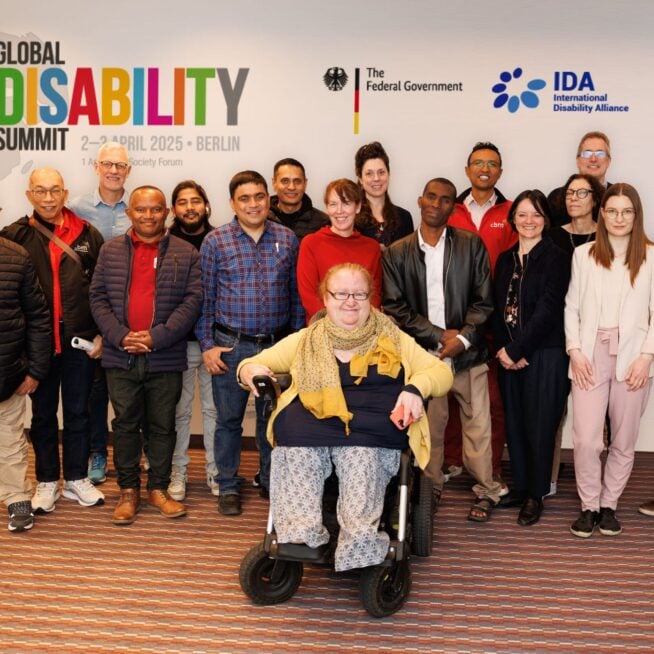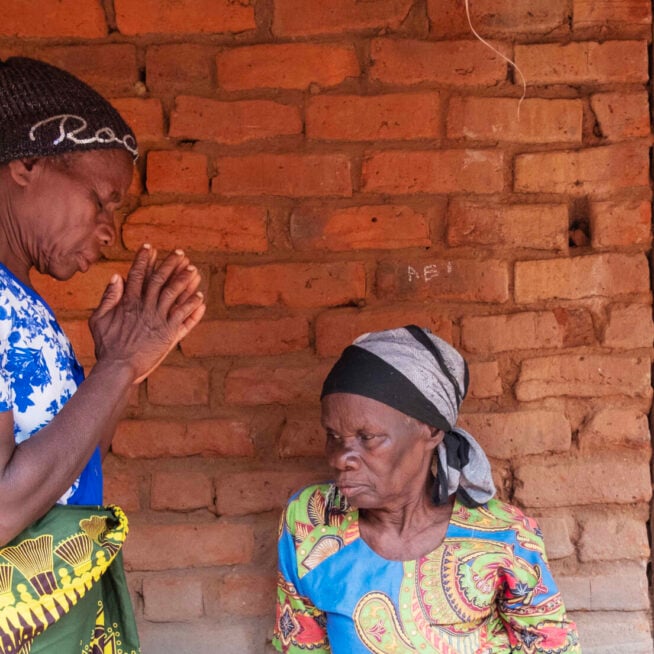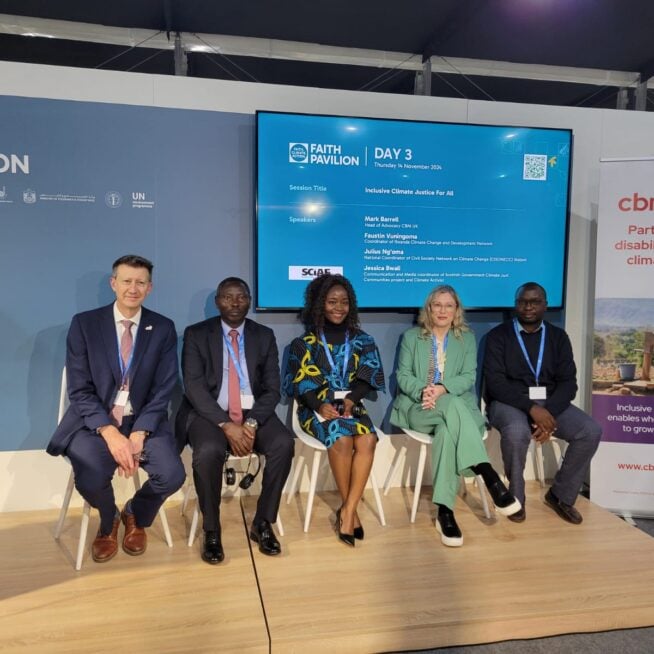Want to transform lives with us? Stay in touch and hear about our news, activities and appeals by email!
Kenya Drought: Cecilia’s and Risper’s Story
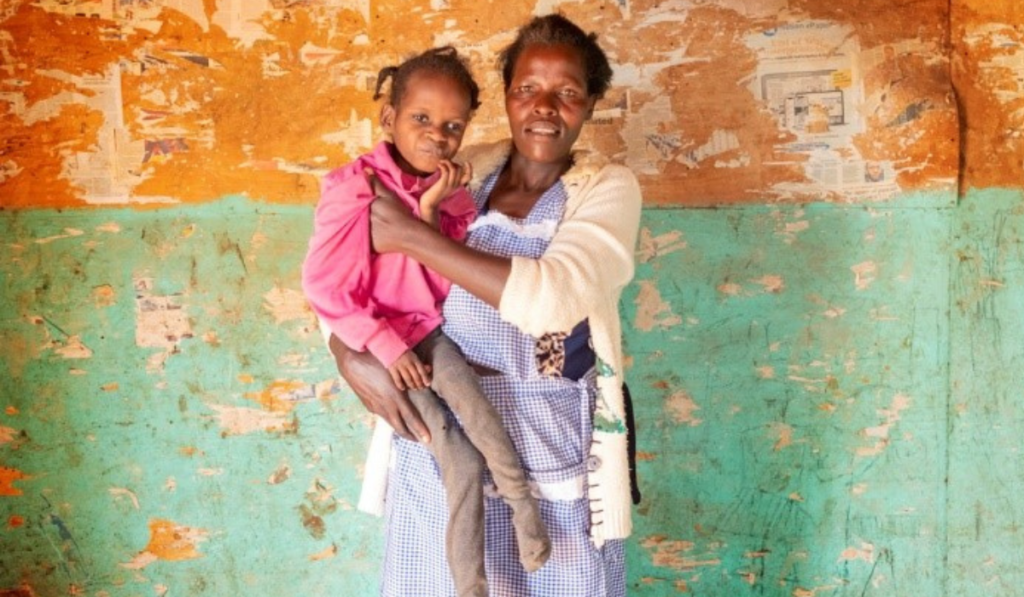
10 year-old Risper is deaf-blind. She lives with her mother, Cecilia, and 5 siblings in Meru County, Kenya. After years of struggling to know how best to meet her daughter’s needs, Cecilia joined a local group for people with disabilities. Support from the group has been starting to make a difference for Risper – but as the region is gripped by severe drought, Cecilia still fears for her future.
This is the third post in our series sharing the stories of people with disabilities and their families from drought-affected Meru and Tharaka North counties in Kenya. You can read Sofia’s and Julius’ story below.
Cecilia, 43, is the sole breadwinner for her family of six. Her second youngest child, Risper, is deaf-blind. The 10-year-old had meningitis as an infant and lost her vision and hearing as a result.
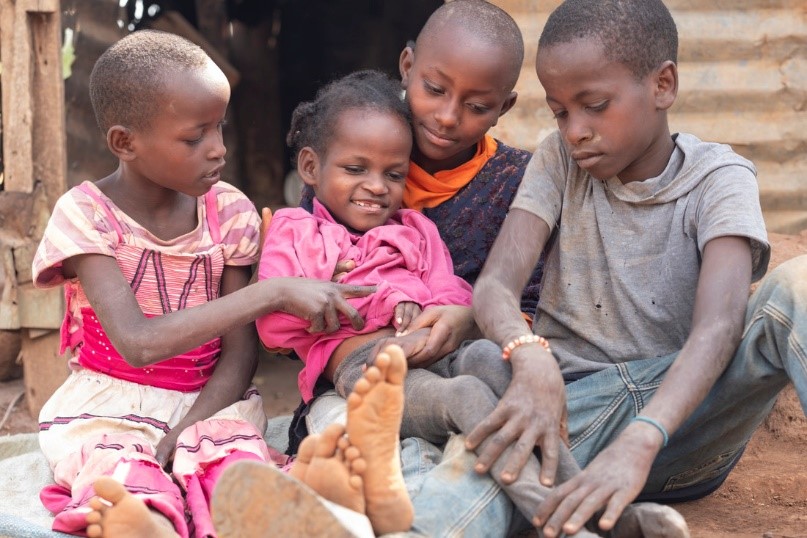
“Risper is entirely dependent on me”, explains Cecilia. Until she recently joined a local Organisation of Persons with Disabilities (OPD), Cecilia had never had any information about how to meet her daughter’s needs. “It is not easy to raise a child who cannot see or talk…I am not sure how to manage this situation”.
The local OPD is part of the CBM-supported MERU Inclusive Trachoma Wash-plus (MINT) Project implemented by the Diocese of Meru. It has been an important source of support – both practical and emotional – and information for Cecilia: “I’ve benefitted a lot from the group”.
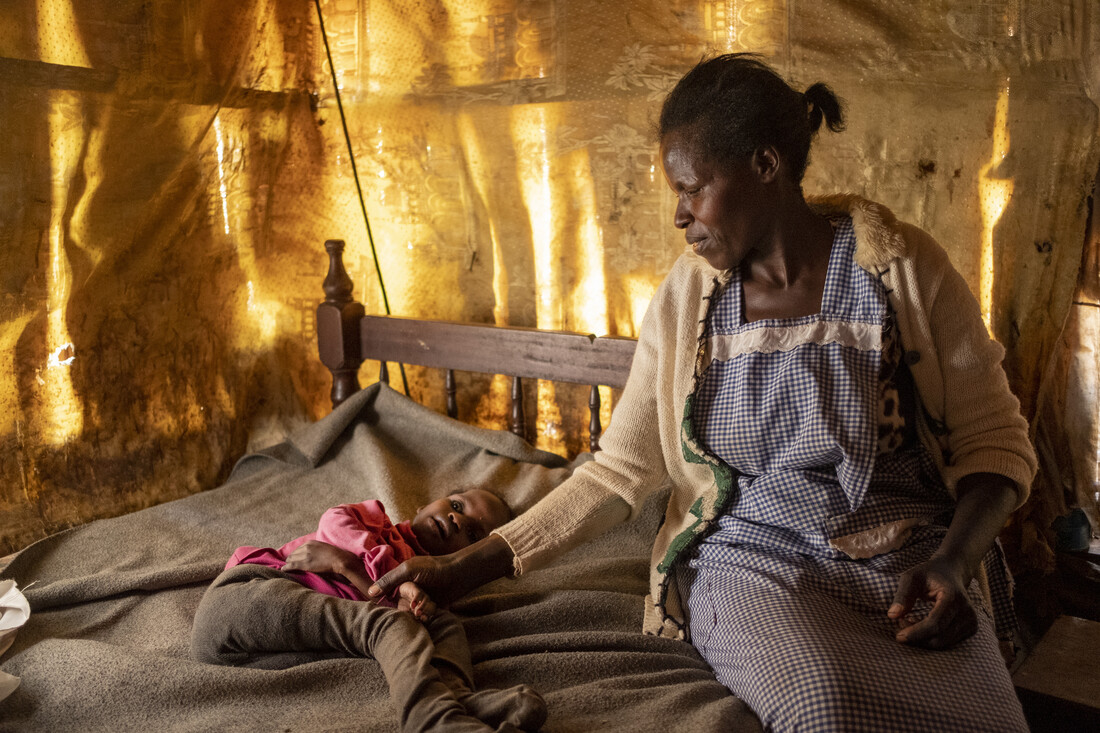
Years of malnutrition have left their mark on Risper, who is much smaller than others her age and can’t move around on her own. Through the OPD, she now receives fortified porridge to address her malnutrition and has been referred for physiotherapy and assistive devices, such as a standing frame. Cecilia has already noticed a difference: “She was weak and feeble, now she will be stronger and probably walk.”
But Cecilia fears that this progress is now threatened by the drought. A half-acre of beans whose seeds were procured through the OPD are now wilted and yellow, dying on the hillside next to Cecilia’s small house.
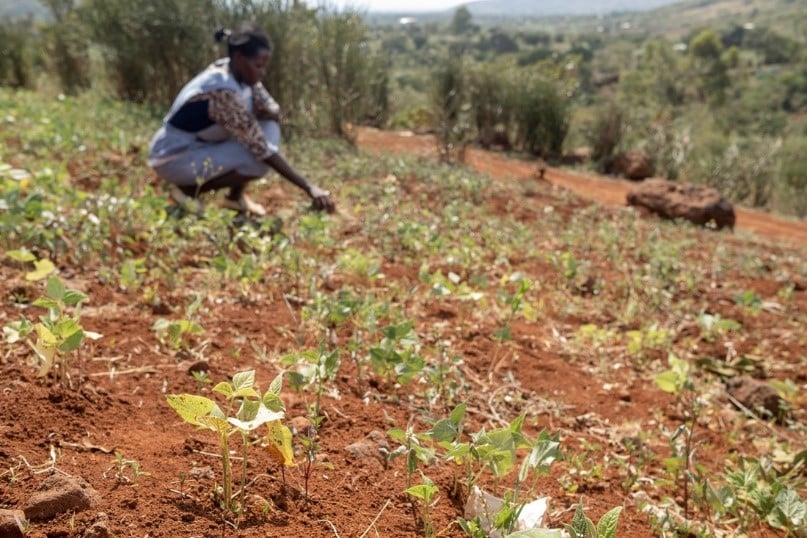
“Even if it rains now there is not much we can salvage – the crops are gone. It’s only fodder for livestock.”
The OPD also gives members the chance to pool savings and take small loans. Cecilia has used the loans to buy wholesale vegetables to re-sell at the local market. “The little money we get from the small loans…its survival”, she explains. But as the drought continues, she is still desperately worried for the future: “I am only foreseeing trouble. We are likely to go hungry.”
All images ©CBM/Hayduk

